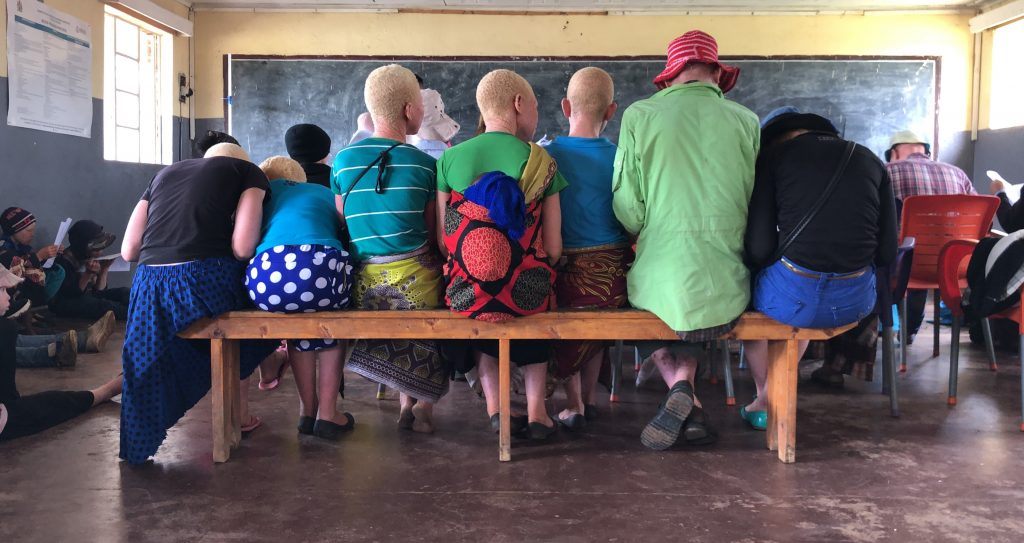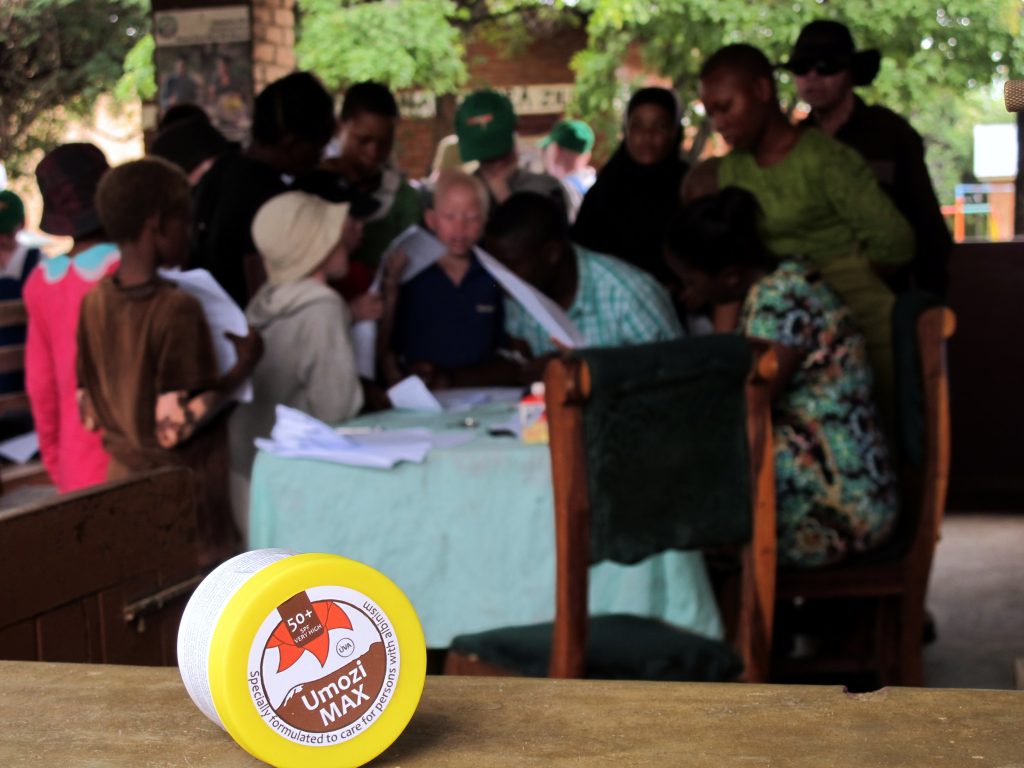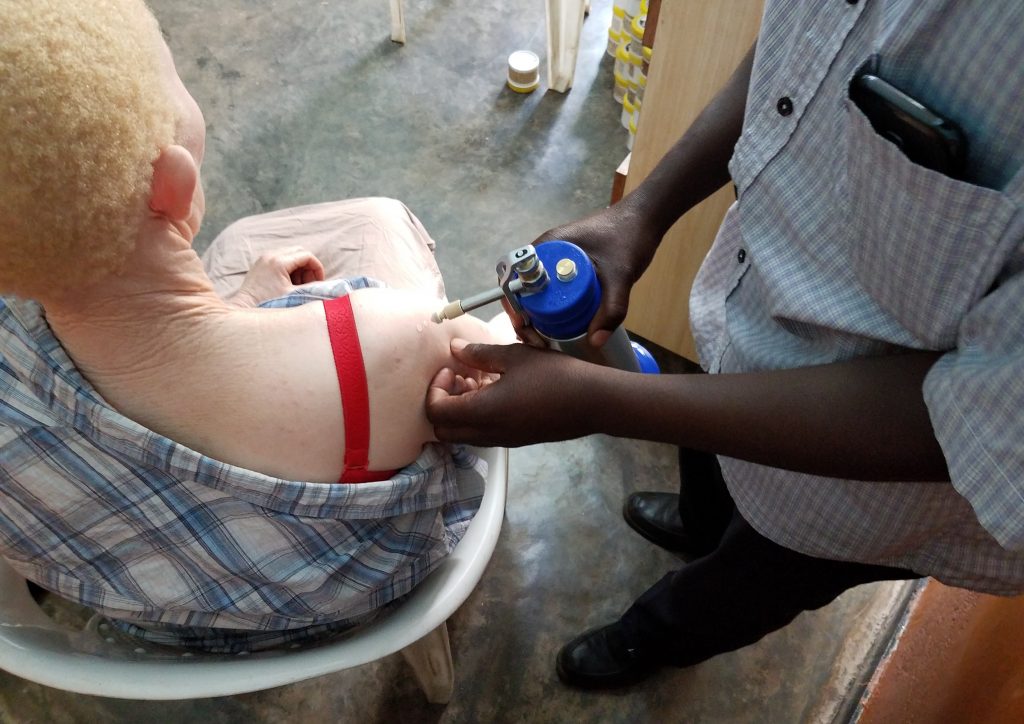We know that the sun causes skin cancer, and we also know that sun protection can prevent skin cancer from appearing. This is vitally important for people with albinism, especially in sub-Saharan Africa, as they are very likely to suffer from severe sunburn from an early age and may not live to see their 40th birthday.
However, there are many factors that contribute to a person not using life-saving sun protection measures: lack of information and education, availability of photoprotection products, poor quality of products, texture of the photoprotective cream, etc.
For this reason, in our opinion it is not enough to distribute photoprotective creams indiscriminately to people with albinism in Africa.
What happens if one day donations of sunscreen stop arriving in Africa? How is it guaranteed that people have proper access to the product? What happens if users of the cream do not know how to apply it and when to do so? What happens if they do not understand the consequences of getting sunburned? What happens if they do not like a very doughy cream and therefore do not apply it? How is the quality of the cream guaranteed?
As a result of our experience in Africa working with people with albinism, at Beyond we think it is important to assess the previous context and evaluate the reception of a project before it is definitively set up. We also believe that users and institutions have to see the value of it. If they do not see the improvement in their lives, the positive impact on their health, our efforts will be useless, and as soon as our direct support is reduced, the project will fall down.
Therefore, we believe in a sustainable way to bring photoprotection education and sunscreen to the most disadvantaged users. And we believe that the best way to do it is through the distribution channels already established in the different countries; using already existing structures which we reinforce.
With this in mind, we carried out an evaluation and acceptance study of our services in Malawi in 2019. The study, which was previously approved by the local ethical committees, involved more than 200 people with albinism. These people attended our bi-monthly education and awareness sessions conducted by trained local health professionals. During these sessions we carried out dermatological monitoring of each of the beneficiaries, and we also distributed our Umozi Max sunscreen
At the end of the study we evaluated both the impact and effectiveness of the services on the skin and health of the participants, as well as their satisfaction with them.
The results of the study were very positive. In less than 5 months there was a 45% decrease in skin damage caused by the sun and an improvement in the knowledge of people with albinism about their condition, which optimized their attitude to the sun. The educational program as well as the Umozi Max sunscreen cream were very well accepted (>90% of the program beneficiaries preferred it over products used in the past) and more than 90% of the participants stated that the services received had a very positive psychosocial impact on their lives.
You can read the final report of the study at the following link:
https://actiononalbinism.org/en/document/qzq33ioskqm?page=1
And now yes, with these data in hand, we have sufficient arguments to ensure that our initiative is accepted, supported and integrated into the official education and health channels of countries such as Malawi.
We will continue to work on this thanks to your support.
Dra. Lorea Bagazgoitia
Dermatologist and Medical Director of Beyond Suncare




